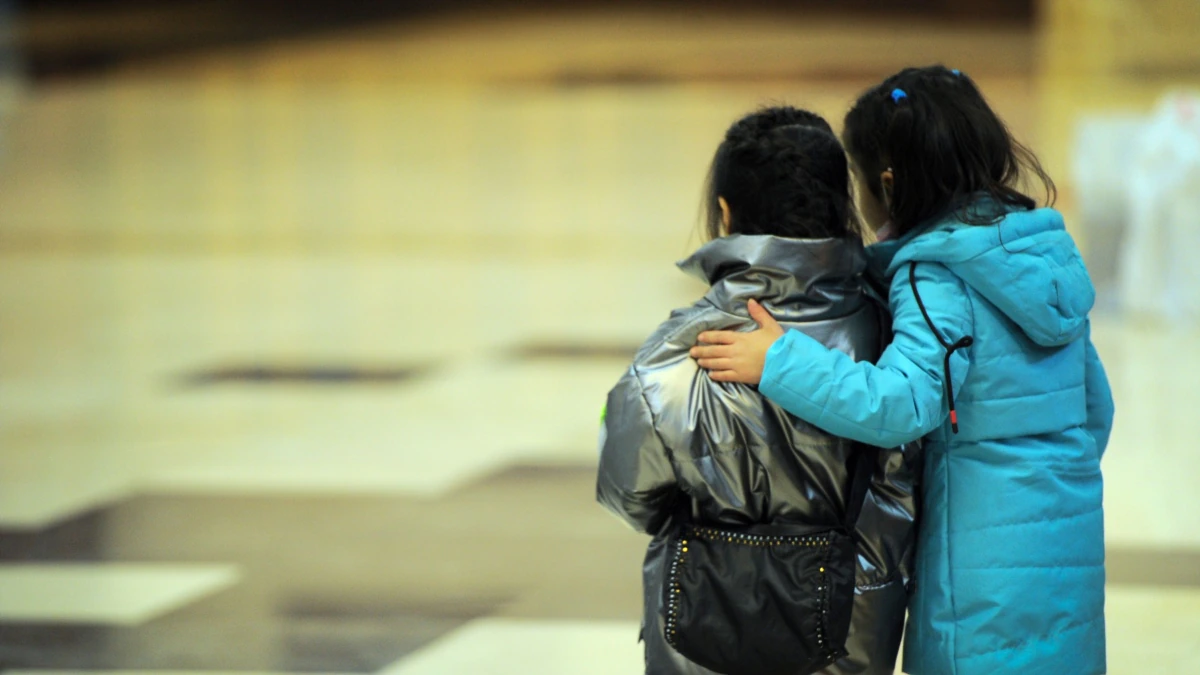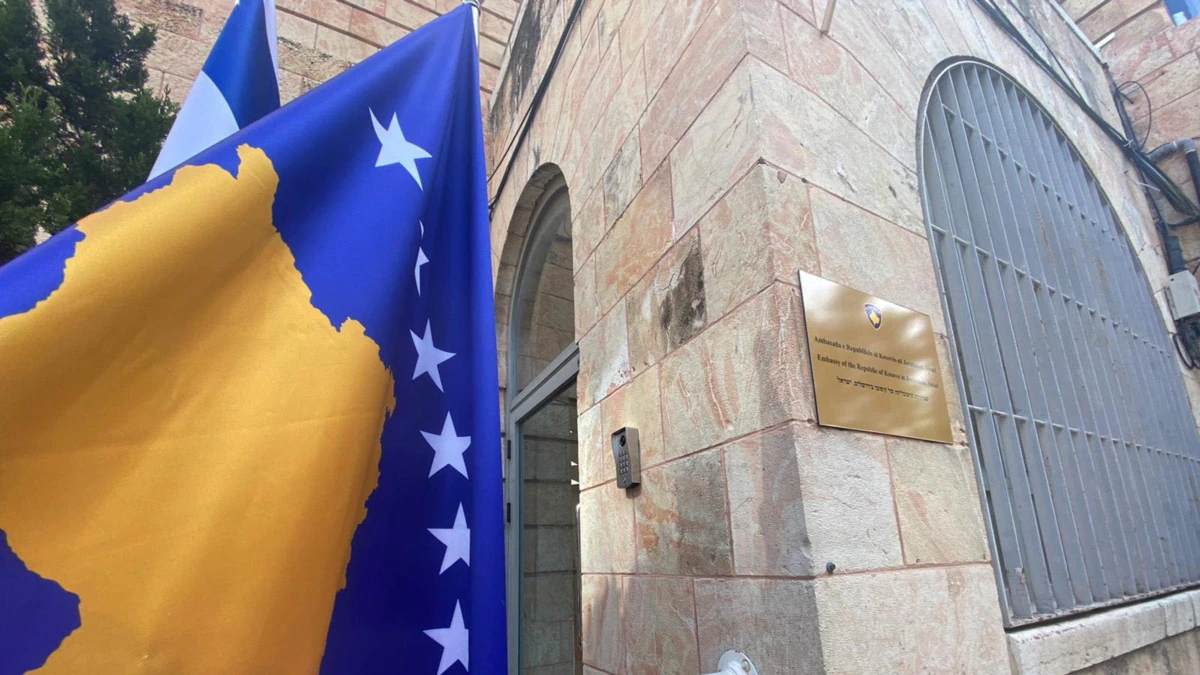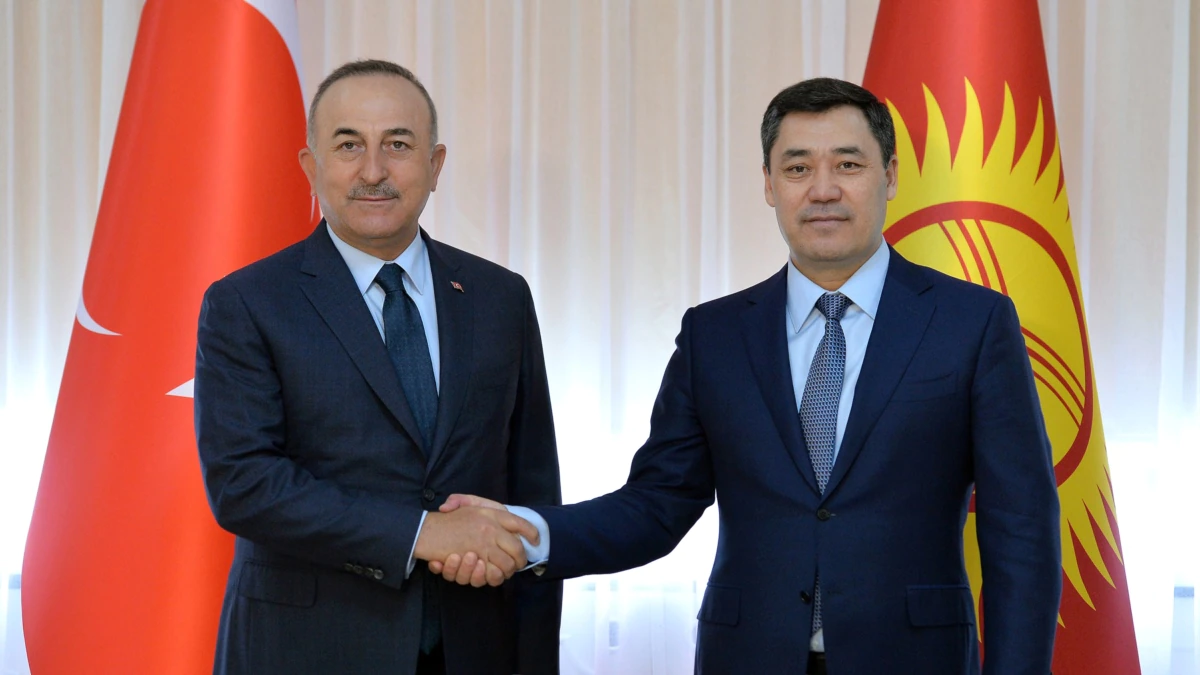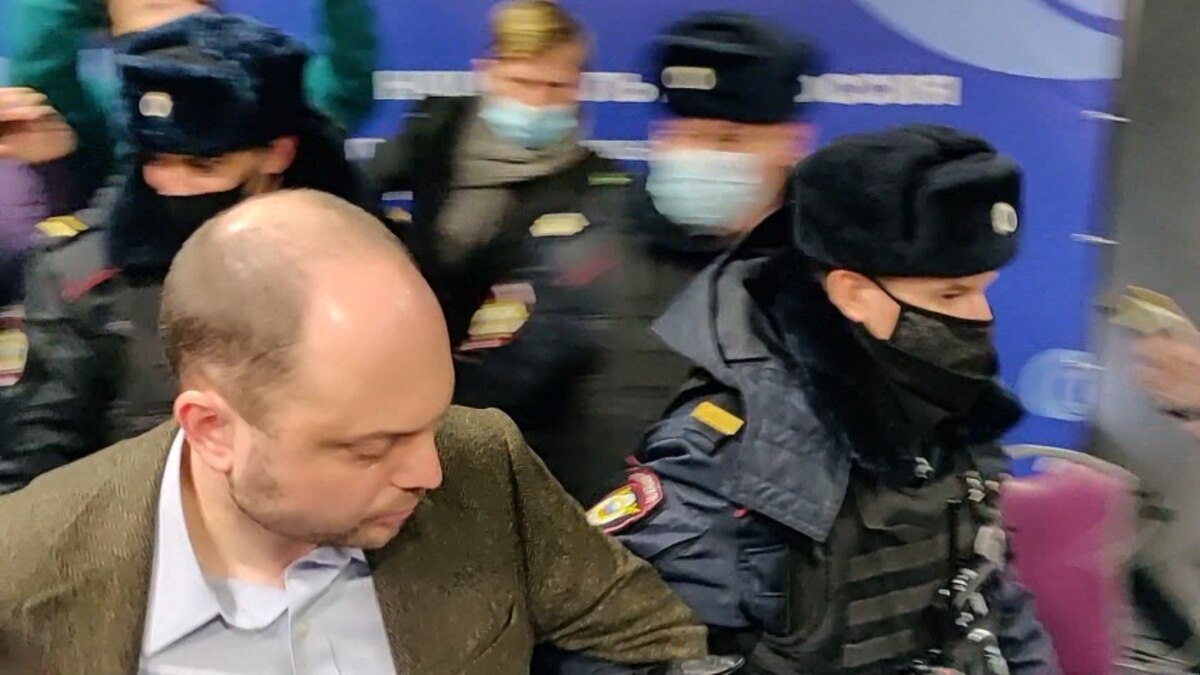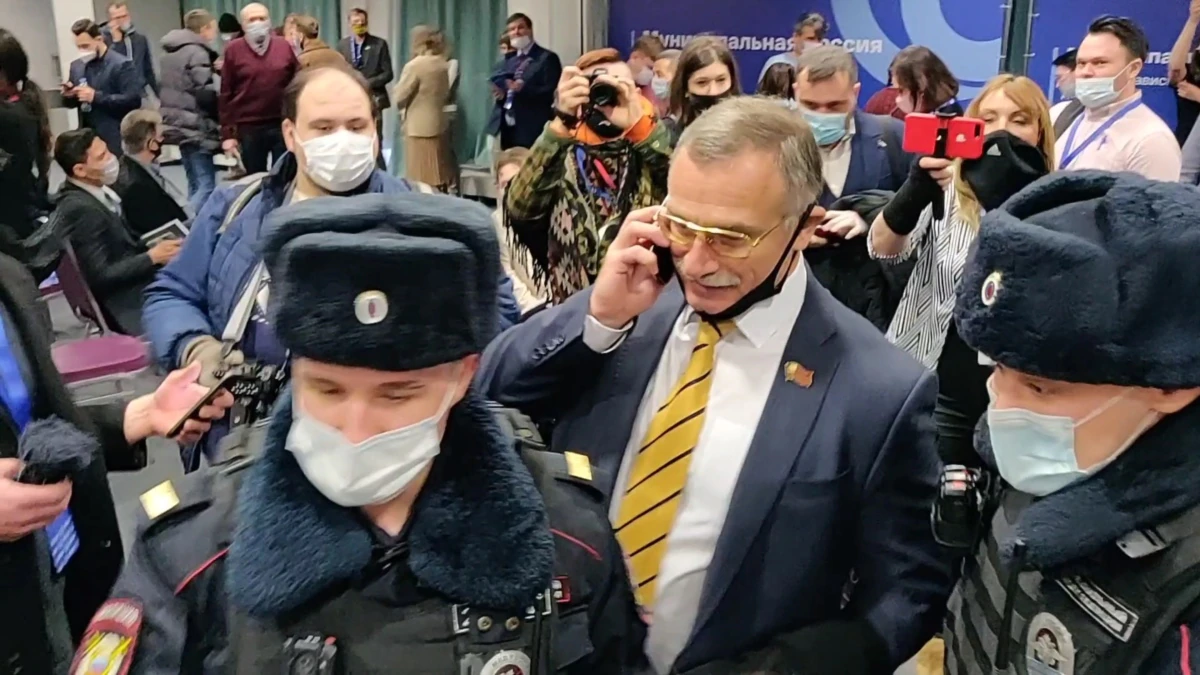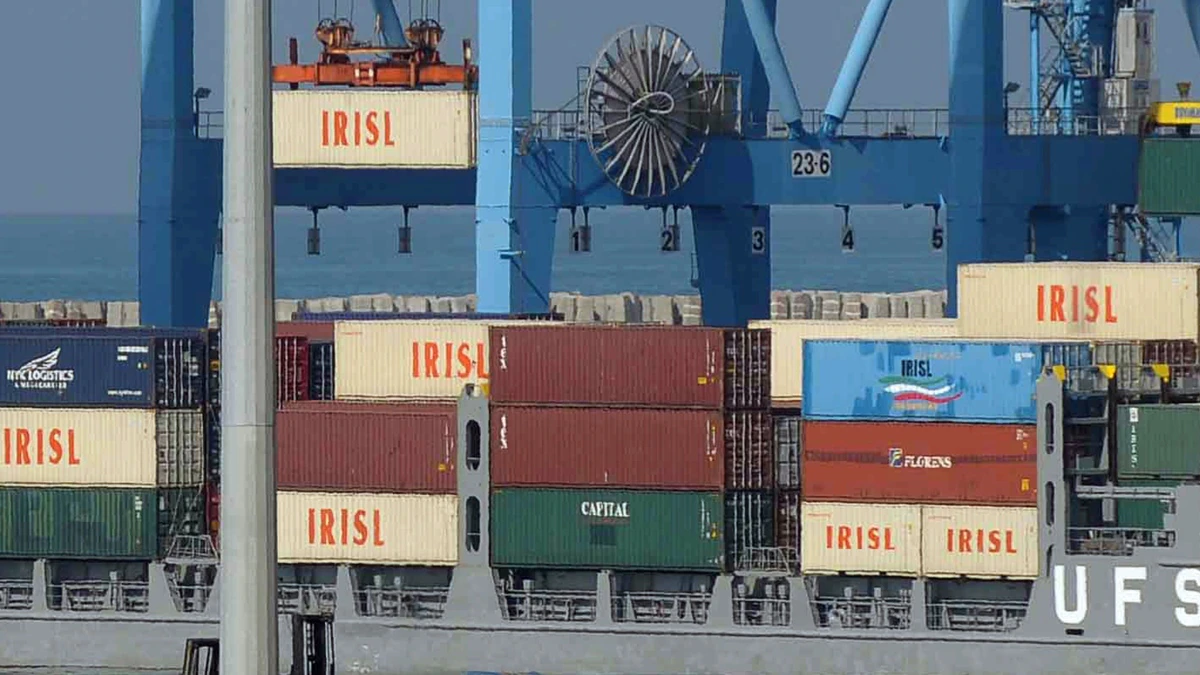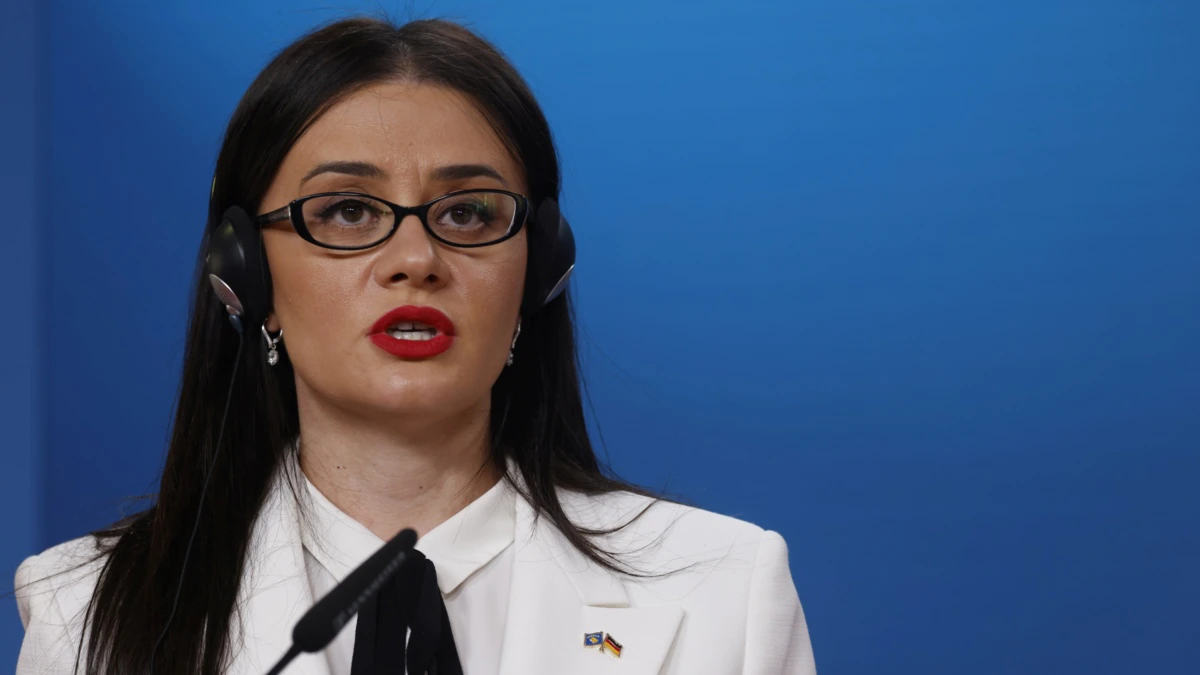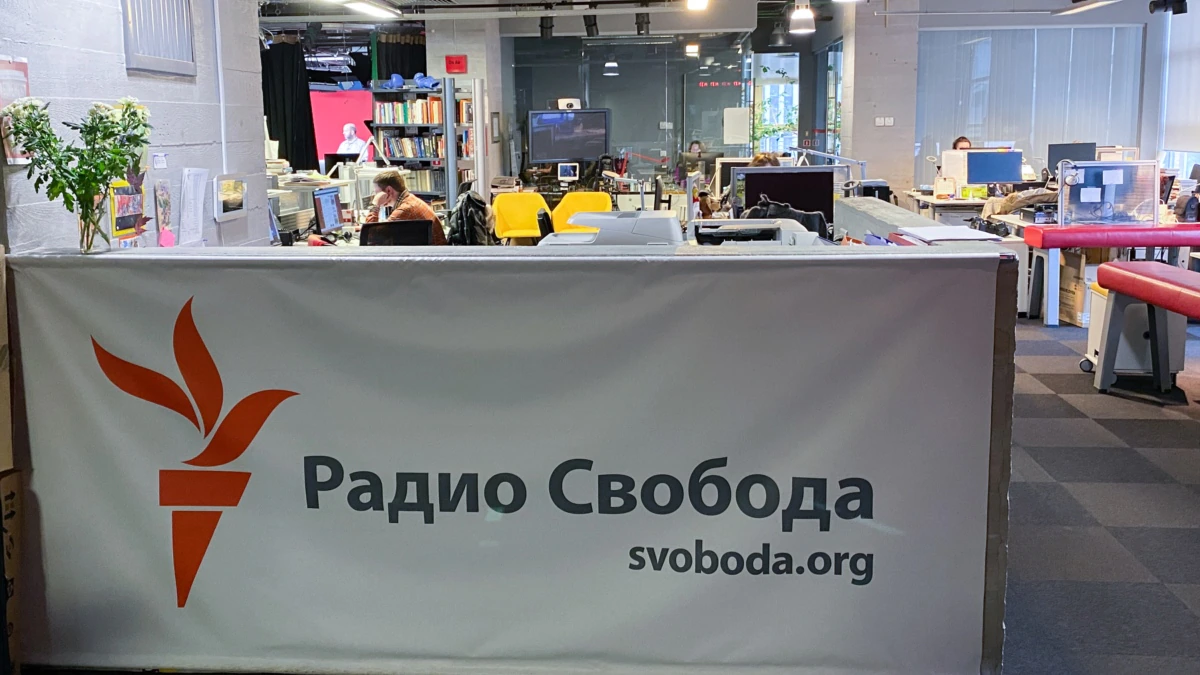
The United States and European Union have reiterated their condemnation of Russia’s increasing repression of independent media, including RFE/RL.
Courtney Austrian, the U.S. charge d’ affaires to the Permanent Council of the Organization for Security and Cooperation in Europe (OSCE), said in a March 18 statement that Russia’s new requirements for outlets branded “foreign media agents” were in some cases technically impossible and were being “used against entities and individuals associated, sometimes only tangentially, with U.S. Agency for Global Media, or USAGM, funded programming in Russia.”
The assault on USAGM outlets, including RFE/RL, “reflects a broader crackdown on independent voices and civil society,” Austrian wrote in the statement on behalf of both the United States and Canada.
“The new regulations are aimed at impeding RFE/RL’s media operations in Russia and reducing its growing audience share.”
Austrian added that, while USAGM outlets were the first foreign media to be targeted by Russia, media from any OSCE state could be next.
The new regulations include requirements that entities and individuals designated by Moscow as “media foreign agents” must note the designation in material published in Russia with a prominent, state-mandated, disclaimer.
In some cases, such as tweets, the requirement was technically impossible because the disclaimer had more characters than allowed by Twitter, Austrian noted.
Austrian noted that Russia’s media regulatory body, Roskomnadzor, has opened 260 cases against RFE/RL for violations of the regulations, with potential fines of $980,000, since January 14.
“We reiterate our call on the Russian government to end its repression of independent journalists and outlets, including RFE/RL and its affiliates,” Austrian wrote. “The people of Russia deserve access to a wide range of information and opinion and a government that respects freedom of expression in keeping with Russia’s international obligations and OSCE commitments.”
False Equivalence
In a later “right of reply” statement delivered to the Permanent Council in Vienna, Austrian said that the Russian delegation to the intergovernmental organization “has repeatedly tried to create a false equivalence between the draconian measures taken against RFE/RL in Russia and the legal framework within which RT and Sputnik operate in the United States.”
Those Russian outlets are required to register with the U.S. Justice Ministry as “foreign agents” under the U.S. Foreign Agents Registration Act (FARA).
However, Austrian said, “we will repeat what we have stated before: there is no equivalence between U.S. FARA legislation and Russia’s ‘foreign agent’ law.”
Austrian noted that while the U.S. law does not impose restrictions on how foreign outlets print and broadcast their stories and opinions, “Russia uses its ‘foreign agent’ law to restrict, intimidate, prosecute, and shut down civil society organizations and independent media.”
The European Union on March 18 also issued a statement to the OSCE Permanent Council expressing “our serious concern about the worsening situation of media freedom in Russia.”
In its two-page statement, the 27-member bloc said that Russia’s adoption in December of stricter measures under its “foreign agents” and other legislation had “enabled the authorities to exercise online censorship.”
“The EU reiterates its longstanding position that the so-called ‘foreign agent’ law contributes to a systematic infringement of basic freedoms, and restricts civil society, independent media, and the rights of political opposition in Russia,” the statement read. “It goes against Russia’s international obligations and human rights commitments.”
The EU statement also described the opening of cases against RFE/RL regarding alleged violations of the labeling requirement as “systematic targeting” and “a blatant attempt to silence independent media and to eventually cease RFE/RL’s activities in Russia.”
‘Orders To Intimidate’
Russia’s so-called “foreign agent” legislation was adopted in 2012 and has been modified repeatedly. It requires nongovernmental organizations that receive foreign assistance and that the government deems to be engaged in political activity to be registered, to identify themselves as “foreign agents,” and to submit to audits.
Later modifications targeted foreign-funded media.
In 2017, the Russian government placed RFE/RL’s Russian Service on the list, along with six other RFE/RL Russian-language news services, and Current Time, a network run by RFE/RL in cooperation with VOA.
At the end of 2020, the legislation was modified to allow the Russian government to add individuals, including foreign journalists, to its “foreign agent” list and to impose restrictions on them.
In December 2020, authorities added five individuals to its “foreign agent” list, including three contributors to RFE/RL’s Russian Service. All five are appealing their inclusion on the list.
Roskomnadzor last year adopted rules requiring listed media to mark all written materials with a lengthy notice in large text, all radio materials with an audio statement, and all video materials with a 15-second text declaration.
RFE/RL President Jamie Fly has called the regulations “orders to deface our content platforms and intimidate our audiences” and says RFE/RL will continue “to object, protest, and appeal these requirements.”
This post was originally published on Radio Free.








